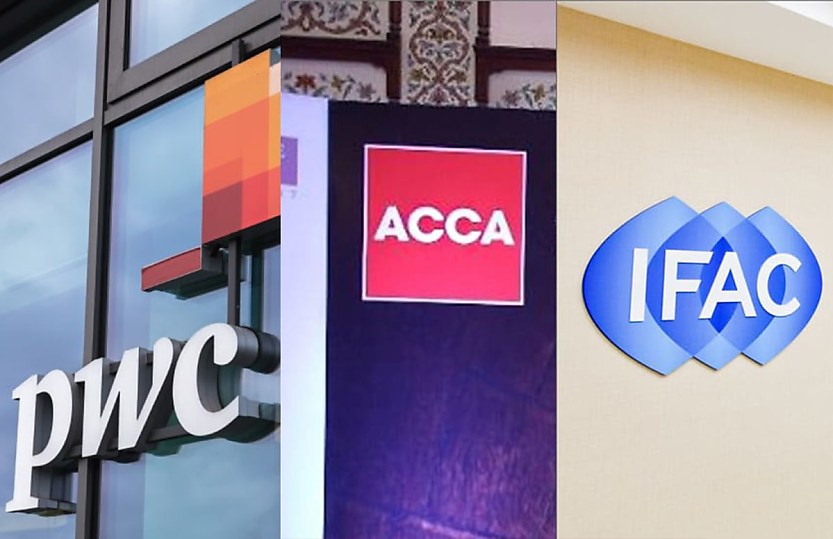Accountants must lead the green transition: IFAC, ACCA, PwC

Major international accounting bodies and PwC say the accounting profession is uniquely placed to lead sustainability transition planning but not without a major rethink and skills uplift.
The sustainability transition must be championed by accounting professionals, according to leading international accounting bodies.
Reporting in an AASB-approved manner, not to mention the grunt work of making operations more sustainable, will require a major upskilling and business strategy redesign process.
At a joint session of ACCA’s recent sustainability conference, representatives of leading international accounting bodies agreed that this process is best led by accountants.
“As a public interest profession, accountants enhance transparency. They have a critical role in de-risking capital markets and organisations, unleashing finance, seizing transition opportunities and mitigating risk,” said the bodies.
Nearly half of the 1,000 finance professionals surveyed around the world last year had no plan for reducing their carbon emissions, the vast majority of whom said they had no intention of developing one.
Internationally developed climate-related financial disclosure regulations are raising the temperature, so to speak, on the remaining sustainability holdouts.
The green transition will stretch the accounting function to consider matters beyond its traditional purview, said Alan McGill, global head of sustainability reporting and assurance at PwC.
“With increasingly important issues such as biodiversity, carbon waterways, social issues and more, what a fantastic time for the accountants to use their curiosity, look at different things – and not just the financial flows,” he said.
“They can get involved to understand how the business is going to transform and they’ve got existing transferrable skills to do this.”
Stathis Gould, director of professional accountants in business at IFAC, said the transition will require a degree of integration across businesses.
“That starts with a clear and widely understood governance structure that drives collaboration and integrated thinking across the business, breaking down silos to drive forward operational integration and connectivity,” he said.
“It’s thinking about how we drive a systemic approach to sustainability integration into core board and management processes and decision-making, such as strategy, risk, investment appraisal – including leveraging green finance opportunities – and reporting, as well as understanding how impacts and other forms of capital such as dependencies all relate to each other.”
IFAC said accountants are well-placed to drive this process given their “integrated thinking mindset[s]”. That said, both McGill and Gould stressed the need for accounting professionals to be more open-minded when weighing the costs of a transition.
“It’s important for us to help change the narrative, moving from ‘What is the cost?’ to ‘What is the cost of inaction?’,” said Gould.
Both acknowledged the major upskilling effort required to get the accounting profession up to speed on sustainability assurance, highlighting the need for ongoing education and vocational training.
“It’s important and we need to get it right, otherwise there will be real issues around the integrity of the data. As a result of this, qualifications around data and information and restatement, which have historically not been a feature of financial audit, might become relatively commonplace,” said McGill.
IESBA is consulting on its draft ethics and independence standards for sustainability reporting and assurance. The assurance standards apply existing ethical and independence principles surrounding audit to sustainability and are profession-agnostic.
The reporting standards are strictly for professional accountants and propose revisions to the IESBA code.
The disclosure rules, contained within the Treasury Laws Amendment (Financial Market Infrastructure and Other Measures) Bill 2024, are currently before Parliament.
From 1 January 2025, Australia’s largest listed and unlisted companies and financial institutions will be required to report on their climate-related financial performance.
The bill will require captured entities to prepare a “sustainability report” per the sustainability rules developed by the Australian Accounting Standards Board (AASB).
The skills challenge will continue to put pressures on recruiting functions as green-skilled finance professionals are in high, and growing, demand.
As recently reported by Accounting Times, the shortage pressures have been driving up how much firms are willing to pay for external sustainability financial consultants.
Both Gould and McGill emphasised the role of digital technology in enabling the transition from a financial perspective. Data collection, analysis and actionability will all benefit from sophisticated digital technologies.
“Impact accounting” refers to the application of traditional accounting and valuation principles to non-traditional capital sources, including natural, social and human capital.
Carbon accounting is the first and clearest example of impact accounting, as monetary values are attached to a company’s overall carbon effect.
“If you are able to take those impacts … and monetise them, that is something that can be introduced to boards of directors, investors, and C-suite decision-makers in a way that is far more comparable (and decision-useful),” wrote Rob Zochowski, chief executive at the International Foundation for Valuing Impacts.
McGill said executives of all backgrounds will be required to acquire new skills and knowledge sets to be able to digest sustainability issues.
Gould added: “There is a huge opportunity and responsibility for the accountancy profession to influence sustainable transition through enabling governance practices. Most boards around the world have at least one board member who’s a professional accountant.”







Comments (0)
Comments powered by CComment